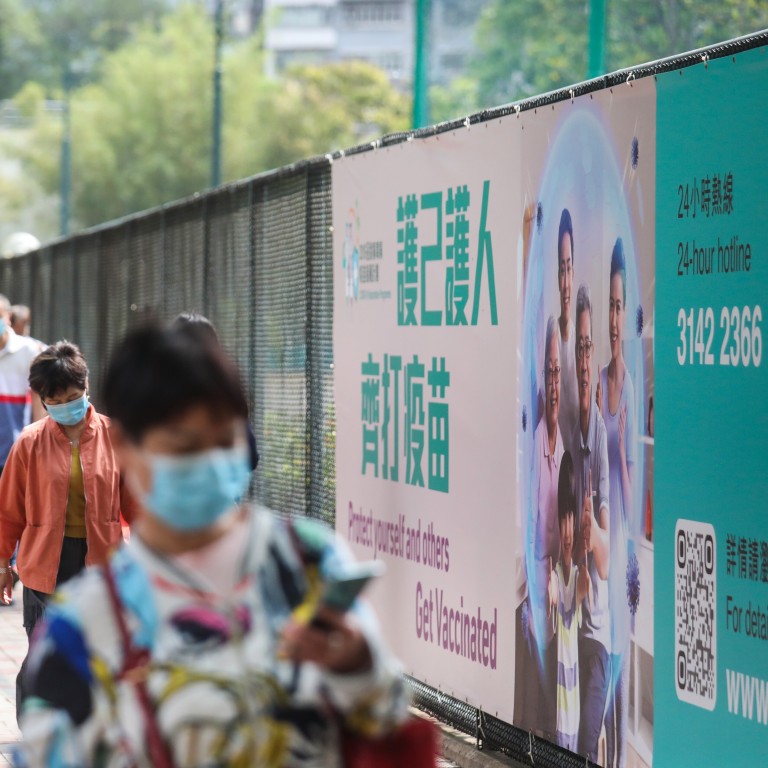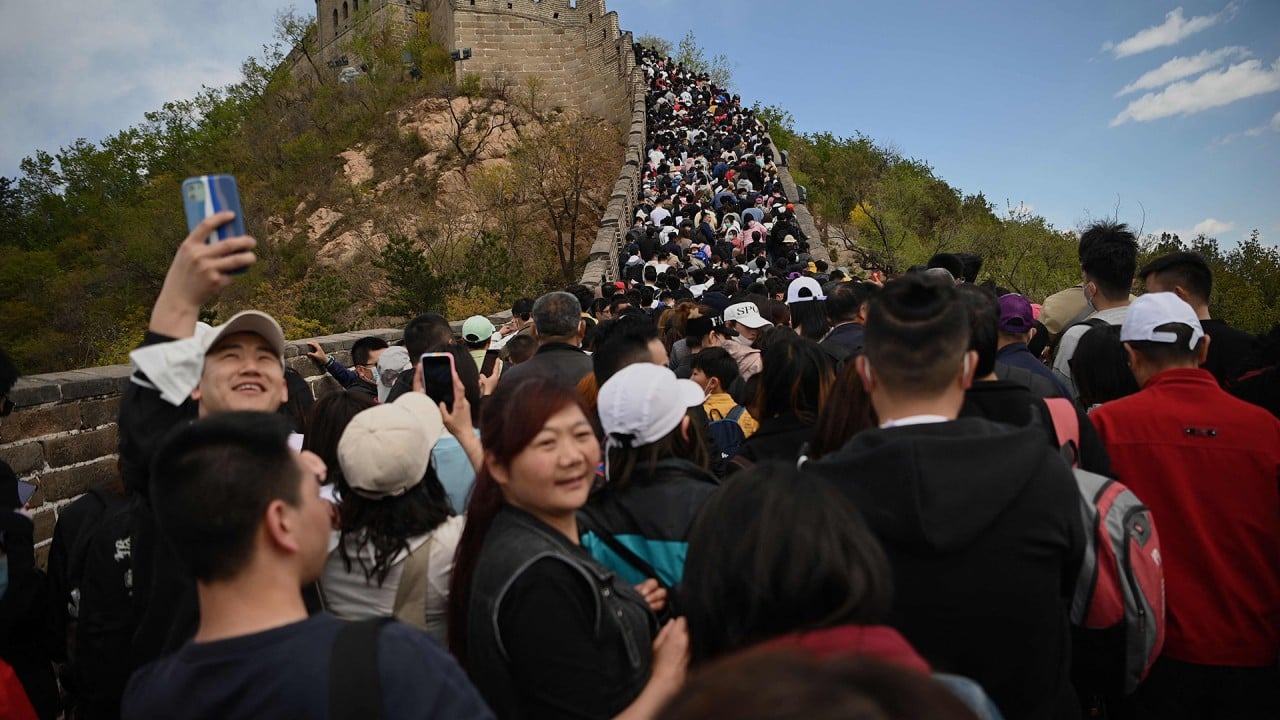
To convince people to get vaccinated, open Hong Kong’s borders
- Borders cannot stay closed forever. Hong Kong must eventually re-enter the world economy as a trading hub and global city
- Caution must give way to the fact vaccines are the ultimate protection, and those who do not get vaccinated can no longer expect the government to protect them in other ways
During the past year, as the world struggled with Covid-19 and politicised its prevention, Hong Kong has been a beacon of sanity and rational behaviour, managing infections and quelling multiple waves of the virus.
Doing so would put residents on notice that the safe bubble of the city’s low Covid-19 infection rates – which creates little incentive for vaccination – cannot be sustained forever. Hong Kong must eventually re-enter the world economy as a trading hub and a global city, launching foreign travellers into mainland China and elsewhere in Asia.

01:26
Chinese travellers pack tourist sites for May Day holiday as Covid-19 fears fade
According to Hong Kong Tourism Commission data, tourism represented about 4 per cent of Hong Kong’s 2017 GDP. By 2018, the city saw more than 65 million visitors, an 11.4 per cent gain over the year before.
Reopening the borders would lead to an inevitable surge in infections. Any introduction of Covid-19 in the never-infected population will result in numbers higher than the single-digit infection rates the city has aimed to maintain.
But those who are vaccinated will be protected, and the city’s vaccinated health care workers will be able to manage any spike without personal risk or danger of bringing the virus home to their families.
Schools have always been a concern, and they will inevitably see some infections when the country reopens, but those aged 12 and over can now be vaccinated and studies have shown the risks to younger children are low.
Families with school-age children will have an additional incentive to vaccinate all members who are eligible to ensure vulnerable older residents are protected. If virus numbers rise, schools could encourage all eligible family members to be vaccinated for children to safely attend in-person schooling.
The Hong Kong government’s measures to protect the population, including rigorous testing for incoming travellers, long quarantine periods and banning outside visitors, have given lucky residents – of which I am one – a chance to live out one of the worst years in memory in relative normality and without major lockdowns or fear of contracting the virus.
That protective caution must now give way to the fact that vaccines are the ultimate protection for residents and those who choose not to avail themselves of that protection can no longer expect the government to protect them in other ways.
Hong Kong cannot operate indefinitely in isolation. Its people – especially young people whose mistrust of the government has contributed to vaccine hesitancy – need to retake the initiative and control their own destiny.
Collin Levy, a writer in Hong Kong, was a speech-writer for US president George W. Bush

